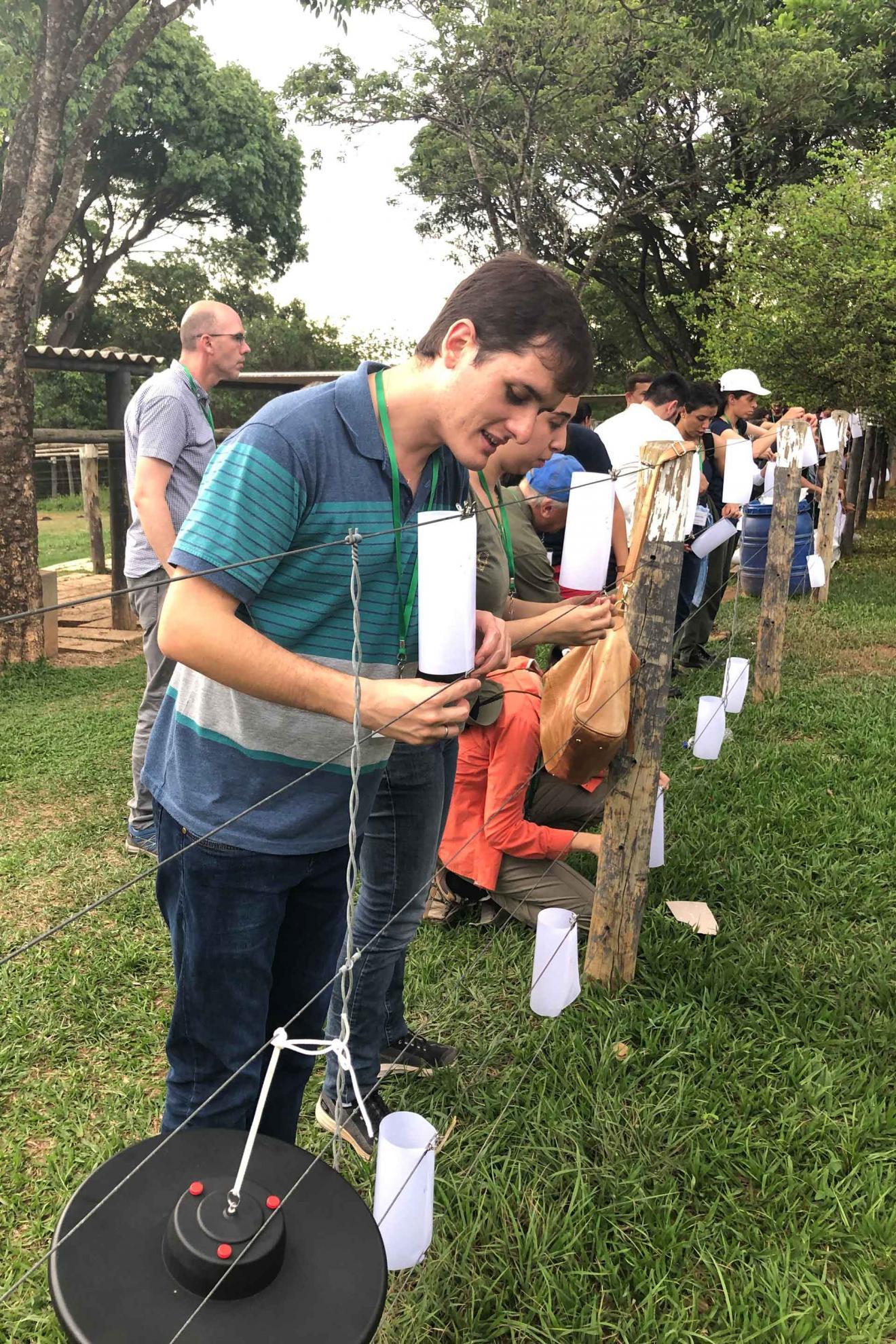Between 4-8 November 2019, the Gnatwork trained a group of 28 international early career researchers at Universidade Federal De Minas Gerais (UFMG), Brazil, to develop the essential skills needed to work with three neglected species of insects that transmit diseases; midges, blackflies and sandflies.
Led by scientists from The Pirbright Institute and UFMG, the week-long meeting aimed to provide best practice training to researchers from countries that receive Official Development Assistance, who would otherwise find training access difficult. Delegates received travel bursaries from the Gnatwork to aid their attendance from locations across Brazil, Argentina and Guatemala.
A conference kicked off the week, which enabled 62 attendees from South America to network and share expertise across three themes; ‘vector research within South America’, ‘introduction to the Gnatwork and vectors’ and ‘trends and opportunities in vector research’. 28 early career delegates then spent the remainder of the week in both theoretical and practical workshops, all designed to improve their experimental skills.

Early career researchers learning how to set traps for field research.Five scientists from renowned international research institutes joined experts from Pirbright and UFMG to run the programme. “The course was designed to guide participants sequentially through each stage of running a field experiment. Starting with basic experimental design, the workshop included sessions on vector biology, trapping techniques, molecular identification of vectors and finished with a session on how to analyse trap data” said Gnatwork Manager, Dr Emma Howson.
The knowledge and skills learnt in these workshops are transferrable across all three insect vectors, allowing scientists to work across research areas as well as to share expertise and methodologies. Gnatwork lead, Dr Simon Carpenter, concluded the week by conducting interviews with the participants to identify barriers to research experienced in their home countries, such as funding, facilities and career progression.
“The Gnatwork aims to break down these barriers by facilitating the partnership between research groups from Brazil, Argentina and Guatemala with leading research groups in the United Kingdom, France and Bangladesh. The partnership will help to identify further sources of funding for projects, which could support early career researchers to gain access to further training at centres of excellence or to allow experienced researchers to continue working in research centres in developing countries” said Dr Maria Isabel Maldonado Coelho Guedes from UFMG.
